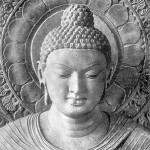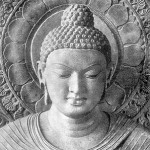
I was lucky enough to have attended a 1 day workshop in NYC yesterday led by Jack Kornfield, “bestselling American author and teacher in the the Vipassana movement in American Theravada Buddhism”. The main themes of the day were around Buddhist Psychology and there were some interesting moments for sure, including many people struggling with feelings following a particularly painful election season.
I took a few notes and highlights that, for me, resonated. I have put my own words to them with a brief explanation. I hope they may be of some interest or help to others, as well.
- “There’s no time like the present.” – It is a basic human necessity to face and deal with that which is right in front of us at this moment as soon as possible.
- “Pay attention to what you are listening to.” – It is important to listen not just to what your thoughts and mind are telling you inside but listen outside as well and broaden your scope.
- “Mindfulness alone is not enough.” – Mindfulness has to be paired with loving awareness otherwise we are just mindful without acceptance. For example, we can be mindful of everything that is “wrong” and without loving awareness, just want to fix things. If you ask yourself: “how can I be present with the way things are?” the answer is that for mindfulness to work, it must be married to compassion.
- “Train with compassion.” – Mindfulness training takes compassion for oneself. Just be with your feelings without judgement for it to work. Simply name your feelings and meet them with respect. This will eventually lead to transformation.
- “The choice is yours to make.” – Once you name your feelings, particularly those that are difficult like grief, desire, etc – learn to be in their presence and then you can make a choice whether to stay there. As yourself: “is this a healthy choice or not?”
- “Know when to care and when not to.” – Equanimity is about inner balance and resiliency. At the same time when we must learn to care for ourselves and others, we must also know when not to care, as well.
- “Your happiness can only be up to you.” – Your happiness (and suffering) depend on your thoughts and actions and not the wishes of others for you. It is up to you to break dependencies on others – and the same goes for those in your life who may be looking to you or others to break their patterns of suffering.




